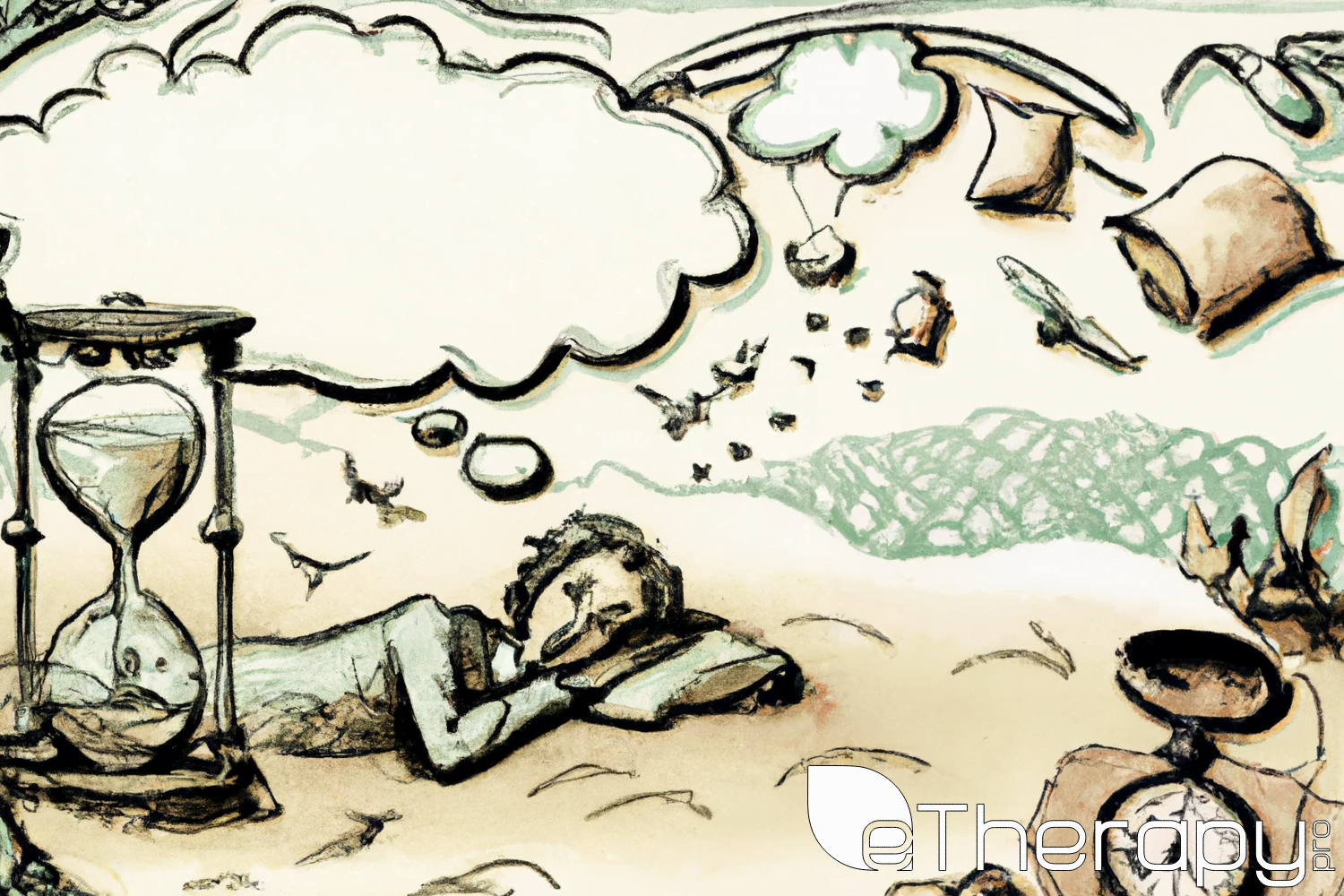
Sleep & Brain Function, often perceived as a simple nightly routine, is a complex biological process and sleep shapes your brain. Ever wondered why after a sleepless night we often feel groggy, irritable, and unfocused? The intricate relationship between sleep and the brain is the answer.
Understanding the Phases of Sleep & Brain Function
Sleep, while often perceived as a singular, homogenous state of rest, is, in fact, a cyclical pattern of varying depths and characteristics. Delving into its phases reveals a dynamic orchestration of physiological processes supporting the body and mind.
Non-Rapid Eye Movement (NREM): NREM, often considered the foundational block of sleep, is further divided into three distinctive stages, each playing its part in rejuvenating the body and mind.
Rapid Eye Movement (REM): This unique phase of sleep is synonymous with vivid dreams and serves pivotal roles in cognitive and emotional health.
Let’s dive deeper into the intricacies of these phases:
Unpacking NREM Sleep
NREM acts as the bridge between wakefulness and profound sleep. Its progression can be understood as:
Stage 1: A light, transitional phase that lasts several minutes. Here, heart rate slows, muscles relax, and brainwave activity begins to diminish.
Stage 2: As we move into this stage, our body temperature drops, and eye movements cease. Brain waves continue to slow but are interspersed with occasional bursts of rapid activity known as “sleep spindles.”
Stage 3: Often referred to as deep or delta sleep, this is the most restorative stage. During this phase, blood supply to muscles increases, tissue growth and repair occur, and essential hormones are released for growth and development.
Delving into REM Sleep
REM sleep, starting about 90 minutes after falling asleep, is marked by a flurry of activity:
Eye Movement: As the name suggests, this phase witnesses rapid side-to-side eye movements behind closed eyelids.
Brain Activity: Brain wave patterns become similar to those seen during wakefulness. This increased activity is associated with intense dreaming.
Body Paralysis: An intriguing aspect of REM is the temporary paralysis of major voluntary muscle groups. This is believed to be nature’s way of preventing us from acting out our dreams.
Cognitive and Emotional Processing: REM sleep is vital for consolidating memories, processing emotional experiences, and fostering creativity. Its importance in mood regulation makes it a critical component of our sleep cycle.
Throughout the night, the duration and frequency of these phases change, with NREM dominating the early hours and REM periods extending in the latter part of the night. This intricate dance between NREM and REM ensures our brains and bodies receive the rest and restoration they need.
Sleep is the golden chain that ties health and our bodies together. – Thomas Dekker
Sleep & Brain Function: Sleep’s Role in Cognitive Function and Memory
A good night’s sleep is crucial for cognitive functions. It’s during sleep that the brain processes and consolidates memories from the day.
Memory Consolidation
As we go about our day, our brains take in a vast amount of information. Sleep provides the necessary downtime to sort, process, and store this information. Without adequate sleep, our ability to form both short-term and long-term memories is compromised.
Cognitive Abilities
A lack of sleep affects our thinking processes. Problem-solving abilities, attention span, and decision-making skills can all suffer.
Man should forget his anger before he lies down to sleep. – Mahatma Gandhi
Sleep & Brain Function: Emotional Regulation and Sleep
Have you ever noticed being more emotional or unable to control your mood after a bad night’s sleep? There’s science behind that.
Sleep and Emotional Processing
REM sleep, in particular, is crucial for emotional processing. It’s believed that during this phase, our brains process emotional information, which can help in emotion regulation the next day.
The Amygdala and Sleep Deprivation
The amygdala, a region of the brain responsible for emotion, becomes more reactive under sleep deprivation. This increased reactivity can lead to heightened emotional responses and mood swings.
Sleep & Brain Function: Mastering Sleep Hygiene
Restful sleep doesn’t just happen; it often requires conscious effort and setting the right conditions. Establishing a consistent sleep routine and optimizing your sleeping environment are paramount. Let’s explore how you can implement these guidelines to make each night’s rest as rejuvenating as possible.
Crafting a Sleep Schedule
Our bodies thrive on routine. Setting and sticking to a regular sleep schedule can have profound effects on sleep quality:
Consistency: Try to wake up and go to bed at the same time every day, even on weekends. This consistency reinforces your body’s sleep-wake cycle.
Wind Down: Establish a pre-sleep ritual to signal your body that it’s time to relax. This could include reading a book, practicing deep-breathing exercises, or indulging in a warm bath.
Designing a Sleep-Friendly Environment
Your sleeping environment plays a significant role in determining how well you sleep. Here’s how you can optimize your bedroom:
Darkness Matters: Use blackout curtains or an eye mask. The absence of light signals the brain that it’s time for sleep.
Cool Down: The optimal temperature for sleep is around 60-67°F (15-19°C). Consider using fans or adjusting your thermostat.
Limit Noise: If you’re in a noisy environment, earplugs or white noise machines can be useful. The idea is to eliminate sudden noise changes.
Bed Sanctity: Keep your bed reserved for two primary purposes: sleep and intimacy. Avoid turning it into a workspace or TV lounge.
Mindful Consumption
What you put into your body, especially as bedtime nears, can significantly impact sleep quality:
Eat Right: Avoid heavy or large meals within a couple of hours of bedtime. Spicy or acidic foods can cause heartburn and disrupt your sleep.
Caffeine Watch: As a stimulant, caffeine can ruin sleep. It’s best to avoid tea, coffee, cola, or chocolate in the evening.
Alcohol: While it might help you fall asleep faster, alcohol can interfere with your sleep cycle, making you feel more tired when you wake up.
Tech Detox Before Bed
In our interconnected world, screens are unavoidable. But for better sleep:
Blue Light Hazard: Devices like smartphones, tablets, and computers emit blue light, which can mess with our sleep hormone, melatonin. Software solutions like “Night Shift” or “f.lux” can help reduce blue light exposure in the evening.
Digital Wind Down: Establish a screen-free period before bed. Instead of scrolling through social media, consider reading a physical book or practicing relaxation techniques.
Balancing Physical Activity
Exercise can act as a double-edged sword when it comes to sleep:
Regular Exercise: A consistent fitness routine can deepen sleep and help you fall asleep faster. Activities like walking, cycling, or swimming can be beneficial.
Timing is Key: While exercise can promote better sleep, doing it too close to bedtime can increase energy levels and potentially delay sleep. Aim to finish any vigorous activity at least 3 hours before you plan to sleep.
By understanding and implementing these principles, you can set the stage for a night of restful, rejuvenating sleep.
When to Seek Professional Help
Sleep disturbances that persist might be indicative of underlying conditions like insomnia or sleep apnea. If you’ve tried improving your sleep hygiene but still struggle, it might be time to seek professional advice.
Conclusion of Sleep & Brain Function?
Sleep is not just a passive activity; it’s a dynamic process that plays an integral role in the overall functionality of our brains. From memory consolidation to emotional regulation, the impact of sleep on our daily lives cannot be understated. As the science behind sleep continues to unravel, one message remains clear: never underestimate the power of a good night’s sleep.



